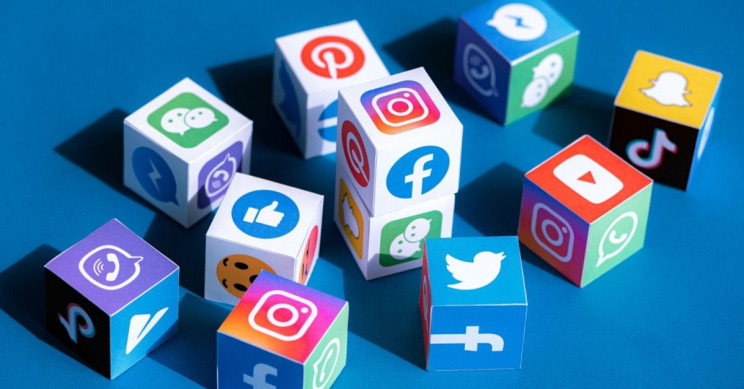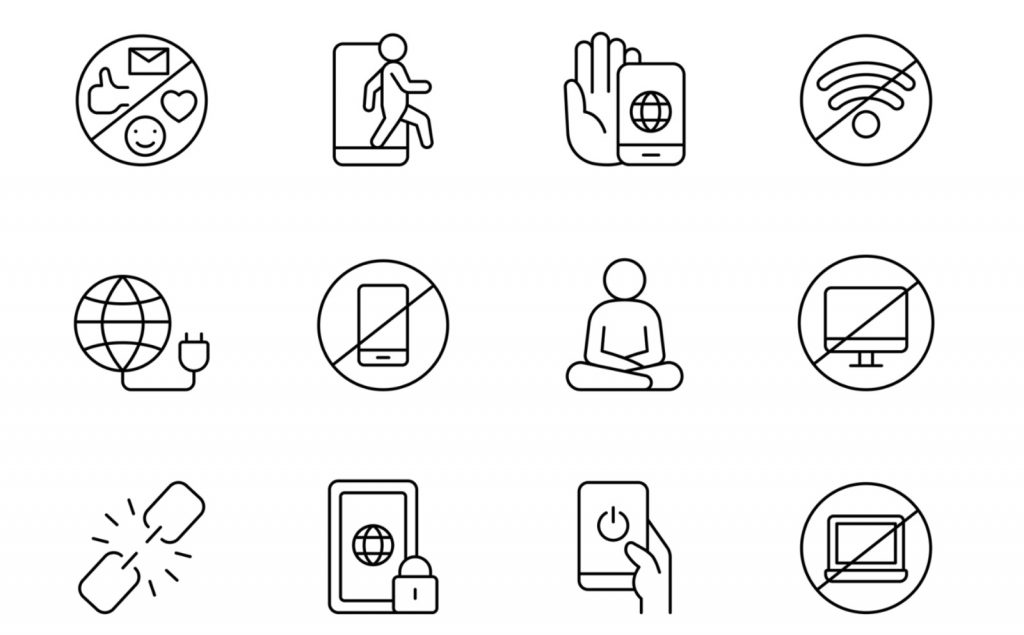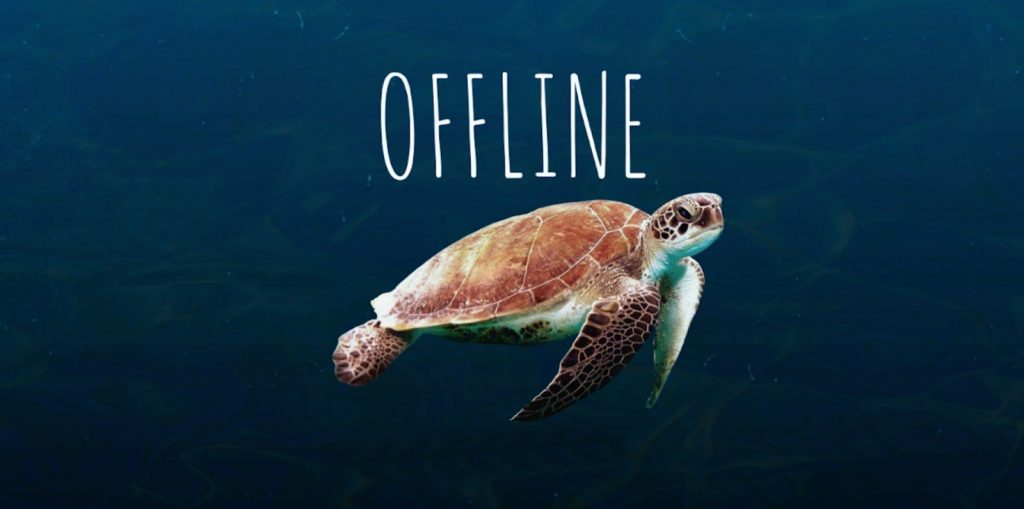
Warning: this article discusses issues related to mental health. Viewer discretion is advised.
Social media has now become our most comfortable way to stay in touch with others. We talk to family via Whatsapp, share our opinions via Twitter and stay up-to-date with friends via their posts on Instagram. On top of that, social media is also a heaven to take a mindless break. Seems like an ideal situation, especially when that heaven mostly sits right in our pocket. Starting as small platforms seeking to connect communities with each other, in 25 years developments have moved quickly. More than half of humanity now uses some form of social media and on average, these users spend about two and a half hours a day in these online communities.
But not everything about social media is what it seems. Many people feel like they spend too much time online, and almost 60% of teens said they would try to reduce social media use as a New Year’s resolution in 2020. Intuitively, most of us seem to think that we could do with a little less time scrolling every day, and there is more and more research coming out that confirms this might be a good idea. Social media has shown its detrimental effects not only on young kids and teens, but also adults. The time we spend online is taking a toll on our mental, physical, intellectual and emotional health, as illustrated below. Is it time to take a break?
Social media is addictive
Social media is the new smoking. While social media addiction is not yet an official diagnosis, that might change soon. Studies have looked back over earlier research on the psychological characteristics and concluded that internet use or social media addiction is as real as it gets, because it checks all addiction criteria boxes, such as neglect of personal life, mental preoccupation, escapism, mood modifying experiences, tolerance and concealment of addictive behavior. Somewhat hilariously, studies have confirmed that people tend to undergo a kind of withdrawal when they stop “using”, which is accompanied by both orally reported feelings of anxiety and objective physiological changes. Although not yet everything is clear, it seems like social media addiction can be considered real and potentially harmful.

Research has also found that social media can aggravate existing problems of mental health. A Systematic study compiled eight papers on the influences of social media on mental health and concluded that while more research is still needed, it seems that those who already suffer from mental health problems, particularly anxiety and depression, can experience worse symptoms from spending too much time online. In addition, social media can be associated with loneliness. Contrary to how it would appear, more frequent and more instant social media interaction is indeed associated with greater perceptions of social isolation. Why people should feel this way (even though they may not actually be) is partly through comparison, where self-esteem takes the hit hardest. And since an active or even glamorous social media life doesn’t necessarily imply an equal one in real life, rather, those who spend more time in sedentary behaviors such as heavy social media use undoubtedly have less time for face-to-face interaction and for making real-life progress. This could explain why feelings of loneliness in adolescents have been on the rise worldwide. Social media use has been taking its heaviest tolls in the time of COVID-19 pandemic, where more severe depression and anxiety arise by deleterious impacts of social media under magnifying glasses. Social media use worldwide has been on the rise again during the pandemic, and loneliness already being a big risk during times of social distancing, these effects could be magnified even further.
Social media is intellectually misleading
With people spending more and more time online since the start of the pandemic, the spread of disinformation and misinformation has also been on the rise. With more and more people getting their news primarily via social media, there have been many ways to come across false information. The principle of social media feeding you content that is similar to previous interactions also means users see more and more news that agrees with their worldview, even when it may not be unbiased or even necessarily true. This type of rabbit-holing can isolate users, causing rifts between families and friends. This can lead to users seeking comfort even more in their online life, which increases isolation. The WHO has even warned about how fake news can be “as much a threat to to global public health as the [COVID-19] virus itself”.
Along with clearly harmful misinformation, the internet is also full of smaller conspiracy theories. Was the moon landing faked? Is Michael Jackson still alive? Is Prince Charles actually a vampire? Questions like these are a way for many influencers to get clicks and views. The belief in these stories may be considered harmless, but as Abbie Richards points out, they are often connected to larger, more dangerous conspiracies. In this way, they can work as a stepping stone for users to look at the funny and innocent-seeming conspiracy theories videos first, while slowly being led to more and more dangerous content. This can cause them to end up in a rabbit hole, where they start believing in dangerous conspiracy theories, such as microchips in vaccines, hormones in water supplies and PizzaGate. These conspiracies have real-life effects, such as rising rates of antisemitism online.
However, after public pressure, companies have slowly started removing hate speech and misinformation. Currently, for example, artists have started removing their music from Spotify in protest to the misinformation spread about COVID-19 by Joe Rogan in his exclusive podcast on the platform. Facebook and Instagram have started automatically flagging information as ‘false’. Sadly, a lot of the damage has already been done, however. UK researchers recently even recommended that false information is not removed from a platform, because banning it will only cause it to move to platforms with less regulation. Instead they recommended to make the public more critical of unknown news sources, so people are less likely to fall for dangerous claims. This can also prevent social isolation from occurring.
Social media is mentally abusive
We are social creatures. We need the companionship of others to thrive in life, and the strength of our connections has a huge impact on our health and happiness. The intrinsic need of being socially connected to others can be the underlying reason that social media gets a quick hold onto us. This has many positive effects, such as enabling us to communicate and stay up-to-date with family and friends across distance or in difficult times, to find new friends quickly who share similar interests or ambitions and (anonymous) communities in case of need, to join or promote worthwhile causes and raise awareness on important issues, or to discover sources of valuable information and learning where in real life it might be less handy.
However, all this convenience amenity is a two-sided blade and things could go in the other direction too easily. Given that teenagers are at a developmental phase in which the impulse and cognitive control in the brain, as well as social reward and emotional processing mechanisms are not yet fully developed, they are a target group too easy to pick up influences without due awareness. For this reason, social media has been linked to general worsening mental health among adolescents.
Especially for young females, social media can pose the additional risk of lowering confidence. By continuously viewing the idealized versions of others that they present on social media, teens and adults tend to start comparing themselves more to others, which can lead to lower self-esteem. Users can also feel like they are not living up to the best version of themselves when they view their own profile. Social media has also been identified as an amplifier of disordered eating. For those trying to recover, it can be hard to remove themselves from these dangerous online communities.
Social media is emotionally damaging
Social media use can also play a more dangerous role in teens’ mental health. Suicide rates among teenagers have seen a drastic increase from 2007 to 2017. In this time period, social media’s notorious effects on self-harm and suicide-related behavior have been validated by longitudinal research. The given evidence includes, but is not limited to, an increase of exposure to extreme content and the opportunity for cyberbullying to occur. Social media has created a world where it is not unthinkable that people set up suicide pacts (an agreement between two or more people to kill themselves at a particular time) or even live-stream their suicide through various social platforms.
While some organizations have proposed guidelines about how the media should report suicides, there is evidence that compliance with the guidelines varies and that it is unclear whether the guidelines have successfully reduced the number of suicides. And since core algorithms of platforms are hidden, there are no means by which governments or independent regulators can review company policies and data to ensure in advance its product isn’t leading to self-harm or even death.
Social media is behaviorally destructive
To step away from the adolescent focus and talk less extreme, for a self-labeled mentally stable adult like me and you, social media can also have plenty of negative effects. Do you ever tell yourself that you’ll spend five more minutes just to check Twitter before going to sleep and find yourself scrolling mind-numbingly two hours later yet simply couldn’t just let go? Insufficient sleep is one of the many health consequences stemming from an increased dependency on technology. There are valid associations among “fear of missing out”(FoMO), compulsive social media use, sleep issues and psychological well-being. This excessive, nocturnal use of social media has certainly brought about what’s called “doom scrolling” (constantly checking social media about stressful news) and what has been considered the biggest factor to adult sleep disturbances through added worrying thoughts.
Sleep issue is just one of the jigsaw pieces contributing to fatigue, attention deficit, memory problems and all in all a malfunctioning brain. One of the deepest concerns expressed by scientists and researchers is the shrinking attention span and the behavior pattern modification, like reaching for your phone almost automatically when nothing is occupying your attention, or multi-screening behavior, defined as using multiple screening devices at the same time. As has long been established, attention and working memory are the two basic mechanisms for constructing temporal experiences, which also underpins many other important aspects of conscious human life, such as perceptions, deliberation and decision making. A divided attention simply does not allow enough room for proper mental function to sink in and settle. And you would think the happy little helpers as your phone could help in such compromised circumstances – research has indicated that people who have recorded and shared certain events actually performed worse in memorizing the occasion than those who merely experienced and had done nothing particularly. This is funny to think while all platforms encourage sharing behaviors as “remember your moments”, well, you don’t. In fact, sharing what you’re doing on social media makes you not only less present in the moment, but also worse at recalling it later.
So, if we are already fearing that they have spent too much time scrolling and clicking, why can’t we just stop? Simple: because revenue-seeking platforms like YouTube, TikTok and Instagram don’t want us to. It has been suggested that people are unlikely to change behavior without tech companies giving control back to the user, which is a laughable dilemma because algorithms behind social media are set up engagingly and addictively by nature, so you won’t just set off your phone and go have a life instead. As a result, people continue to spend more time on the app or website than they would want to, and in doing so, they can end up in dangerous rabbit holes.
While social media addiction has not yet been officially classified as a mental disorder, it has been made clearer than ever that users struggle to regulate their social media use. Users would go out of their ways to pay for an app that could limit their screen time. Though it has been suggested that using a screentime-limiting app for a few weeks should be enough to build a pattern, it is not clear whether these patterns still last after external limits have been removed. But are we doing it correctly, at least for now? The new scholarly term “social media self-control failure” probably says enough. We are a generation caught in between an age with too much prefrontal self-disciplinary demands yet too little artificial intelligence backup resources.

Yes, it is time to take a break
In conclusion, while there can be upsides to the use of social media, when used excessively, it tends to do more harm than not. The argument is good in itself when a “social media break” is referred to as “social media detox” more often than ever. Especially since the pandemic hit, it has become a complicated issue because smartphones, tablets and numerous other electronic devices have become an integral part of the way we connect with friends, family and new people. At the same time, more and more people are willingly deleting their social media without regrets in favor of spending more time in the real world.
Nevertheless, taking personal responsibility is at core. In general, it is important to take a step back from online communities to protect our mental, physical, emotional and intellectual well-being. Reducing use of social media can make us more aware, more realistic, and more connected to the world around us. It’s time to take a break.


